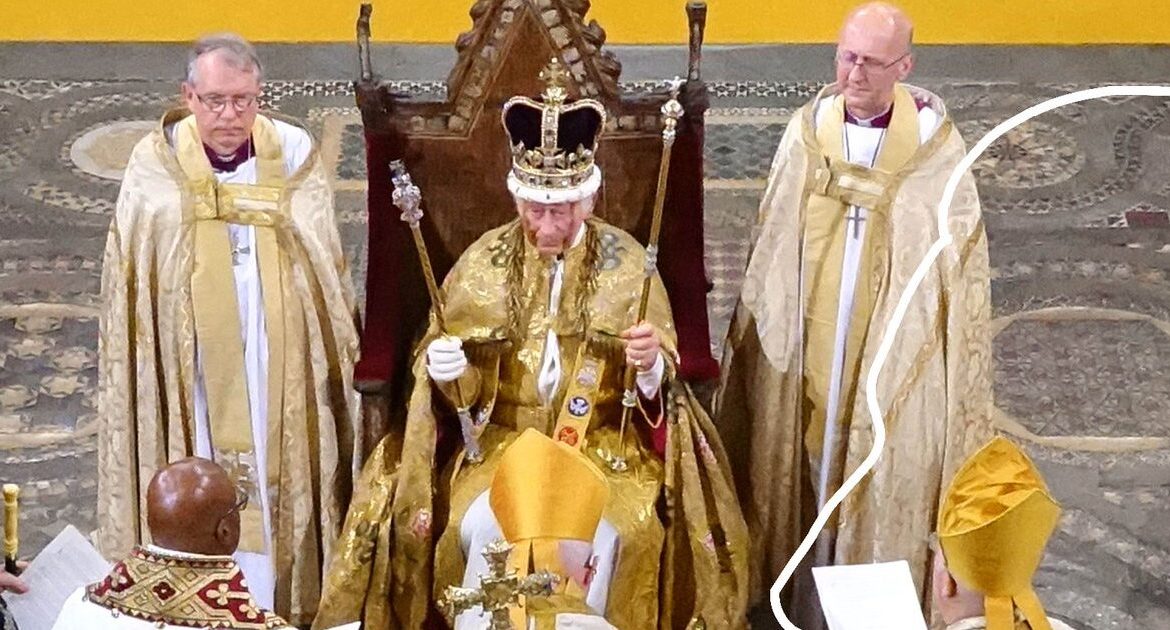
Globalist Leaders Pushing Economic Restructuring, The Green Agenda, and Great Reset


King Charles is arguably the highest-placed globalist on Earth. While it is debatable who the world’s biggest globalists are, six of the most prominent, King Charles, Bill Gates, Tony Blair, António Guterres, Ursula von der Leyen, and Klaus Schwab, are working together to promote policies that expand global governance through climate-based economic controls and large-scale financial restructuring that would fundamentally transform free-market capitalism.
King Charles has long been a central figure in the World Economic Forum’s global agenda. In June 2020, he and the WEF co-launched The Great Reset, calling it “a golden opportunity to seize something good from this crisis.” The initiative sought to “rebuild, redesign, reinvigorate, and rebalance our world,” aligning the global economy with climate and sustainability goals.
Through his Sustainable Markets Initiative, Charles called for a complete redesign of economic systems to make them “greener, more inclusive, and sustainable.” His ten “green recovery” actions included creating global carbon markets, directing investment into sustainable infrastructure, and embedding nature-based solutions in corporate strategies.
In 2021, Charles introduced the Terra Carta, a charter placing “nature and the planet at the center of global value creation,” supported by more than 500 CEOs and organizations. He even urged lifestyle restrictions such as going meat- and fish-free two days a week and dairy-free one day a week to reduce carbon footprints.
For these policies to work, they would require heavy government intervention and constant monitoring, backed by fines or punishments to enforce compliance. Since this framework puts “nature and the planet” at the core of “value creation,” free-market capitalism could not survive. A central authority would have to decide what goods could be produced, in what quantities, and at what price, in other words, communism.
Gates has also been outspoken on environmental and food policy, advocating for behavioral and regulatory shifts to reduce emissions. He has argued that “all rich countries should move to 100 percent synthetic beef,” adding that “eventually, that green premium is modest enough that you can sort of change the behavior of people or use regulation to totally shift the demand.”
This represents a fundamental restructuring of food systems, where government regulation would override consumer choice and market forces to impose dietary changes on entire populations in the name of climate goals.
UN Secretary-General António Guterres has been a driving force behind global frameworks for digital governance. He played a central role in the Global Digital Compact, adopted in September 2024, which established international standards for digital cooperation, artificial intelligence regulation, and the management of emerging technologies.
Guterres has also called for an Independent International Scientific Panel on AI to enforce ethical oversight and has pushed for the integration of digital systems in developing nations to promote economic growth and administrative efficiency, in short, to implant digital governance and control mechanisms across the developing world.
His push for technological integration aligns closely with the World Economic Forum’s global governance agenda. Guterres participated in the launch of the WEF’s Great Reset initiative in 2020 alongside then–Prince Charles and IMF Managing Director Kristalina Georgieva.
The program sought to “reset and reshape” the world economy in line with the UN’s 2030 Sustainable Development Goals, emphasizing labor market restructuring and adaptation to the so-called Fourth Industrial Revolution.
By linking UN initiatives such as the Global Digital Compact with WEF programs, Guterres has positioned the United Nations at the center of a global campaign for digitization, sustainability, and centralized data governance, all promoted under the banner of international cooperation.
European Commission President Ursula von der Leyen has championed the European Green Deal, launched in 2019, which seeks to make the EU climate neutral by 2050, with interim goals of cutting emissions by 50 to 55 percent by 2030. Critics argue that the Green Deal has evolved into political dogma and an economic straitjacket, driving up energy costs, burying industries in red tape, and pushing manufacturers toward more business-friendly regions.
Her Migration and Asylum Pact has drawn similar criticism from conservatives, who view it as a coercive policy forcing member states to either accept migrant quotas or pay financial penalties, further eroding national sovereignty.
These initiatives represent the erosion of national sovereignty within the European Union, which already operates under an unelected executive, a shared currency, and restricted national sovereignty in fiscal and regulatory matters.
In 2020, Schwab partnered with then–Prince Charles to launch The Great Reset, a WEF initiative to “reset and reshape” global systems in line with the United Nations’ Sustainable Development Goals. He declared that “all aspects of our societies and economies” must be “revamped,” insisting that “every country must participate, and every industry must be transformed.” He summarized the plan bluntly: “In short, we need a Great Reset of capitalism.”
The WEF’s messaging reinforces this agenda, promoting alternative food systems such as insect farming, described as an “environmentally friendly solution to the impending food crisis.” Schwab’s now-famous line, “You will own nothing and you will be happy,” became a symbol of The Great Reset’s vision to reimagine ownership, consumption, and production in the name of sustainability.
Together, the Fourth Industrial Revolution and The Great Reset form a unified blueprint for global transformation—one in which technology governs not only economies but also personal identity, access, and behavior, consolidating control under the guise of progress and environmental responsibility.
These globalist leaders are working in concert to fundamentally restructure the world economy. Through climate policies that require constant government intervention, international agreements that supersede national sovereignty, and economic frameworks that would end free-market capitalism, they are building a system where unelected global institutions dictate how people live, what they eat, what they can buy, and how much energy they can use. The Great Reset is not a conspiracy theory, it is an openly stated agenda promoted by the world’s most powerful figures.
The post Globalist Leaders Pushing Economic Restructuring, The Green Agenda, and Great Reset appeared first on The Gateway Pundit.
